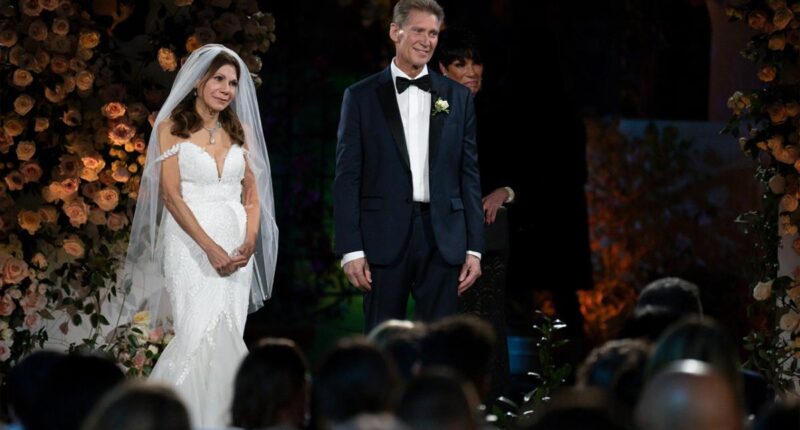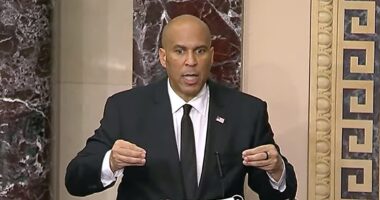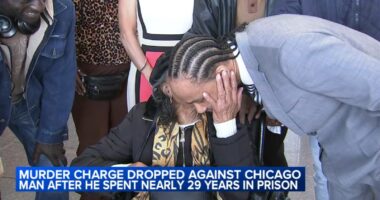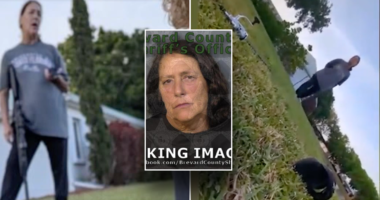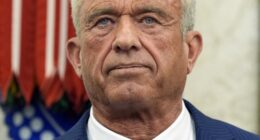The Golden Bachelor‘s Gerry Turner has shed light on his cancer diagnosis, and how his health struggle affected his relationship.
In ABC’s January special, Golden Wedding, Turner tied the knot with Theresa Nist. However, shortly after, in April, they decided to end their marriage. Following this, Turner opened up about his diagnosis of Waldenström’s macroglobulinemia to People, referring to it as a type of slow-developing “bone marrow cancer.”
Turner shared that his cancer diagnosis came at a challenging time as he and Theresa were in the midst of figuring out their lifestyle, living arrangements, and future plans. He expressed, “I was unfortunately diagnosed with cancer while Theresa and I were striving to establish our life together.”
The journey to his diagnosis began three years ago when Turner hurt his shoulder during a pickleball class. Due to various circumstances, he postponed seeking medical advice. It wasn’t until he eventually consulted an orthopedic surgeon that certain irregularities in his blood work surfaced.
“And so an orthopedic surgeon went to my family doctor, my family doctor referred me to an oncologist, and now I’m working with a hematology-oncology group in Fort Wayne,” he told People.
Noting that “there’s no cure for” for his disease, Turner added, “So that weighs heavily in every decision I make.”
The Cleveland Clinic notes that Tuner’s condition “affects your blood cells,” and while there is no cure, there are “treatments that ease and sometime eliminate its symptoms.”
“It was like 10 tons of concrete were just dropped on me. And I was a bit in denial for a while, I didn’t want to admit to it,” The Golden Bachelor star acknowledged.
Prior to learning he had cancer, Turner was told that he had a “blood disorder.” Per People, he shared this information with Nist in February. After more tests, he received his current diagnosis, and broke the news to her in mid-March, which he admitted “was hard” for him.
“But the conversation was brief and I think [she was] a little bit awestruck by the news,” he said. “So understandable.”
He continued, “I wanted my life to continue on as normal as possible, and that led me to believing that as normal as possible more meant spending time with my family, my two daughters, my two son-in-laws, my granddaughters. And the importance of finding the way with Theresa was still there, but it became less of a priority.”
Turner also brought attention to the “judgments” made about his and Nist’s divorce, deeming them “unfair.”
“When you are hit with that kind of news and the shock wears off after a few days or a few weeks and you regroup and you realize what’s important to you, that’s where you start to move forward,” he detailed. “And I hope that people understand in retrospect now that that had a huge bearing on my decisions and I think probably Theresa’s as well. Hopefully they’ll look at things a little bit differently, that maybe it wasn’t quite a rash, fast decision that people thought. That there was something else going on.”
Nist also spoke with People, recalling the moment Turner told her the “devastating news.” Nonetheless, she explained that his diagnosis “wasn’t a factor in the ending of the relationship, at least not for [her],” citing “the distance” as being “part of it.”
(function(d, s, id) {
var js, fjs = d.getElementsByTagName(s)[0];
if (d.getElementById(id)) return;
js = d.createElement(s); js.id = id;
js.src = “//connect.facebook.net/en_US/sdk.js#xfbml=1&appId=823934954307605&version=v2.8”;
fjs.parentNode.insertBefore(js, fjs);
}(document, ‘script’, ‘facebook-jssdk’));
